Mike Rogers announces grant for Cleburne County first responders

Congressman Mike Rogers announced on Wednesday that the Turkey Heaven Volunteer Fire Department will receive a $29,523.80 grant from the U.S. Department of Homeland Security. The funding will help the fire department purchase new operations and safety equipment. “Cleburne County’s first responders work around the clock to keep the community safe,” Rogers said. “This grant will provide Turkey Heaven Volunteer Fire Department with funding to continue to protect the community.” The grant was awarded under the Fiscal Year 2021 Assistance to Firefighters Grant Program (AFG). This essential federal program supports first responders across Alabama and the nation. “It’s our goal to always provide the best equipment and the best response as possible to the community we serve,” the Turkey Heaven Volunteer Fire department said on social media. “We are excited to have preliminary plans to expand and grow! However, with growth, there are growing pains, ours is limited revenues.” In addition to this grant, the Turkey Heaven Volunteer Fire Department recently took possession of a Stewart Stevenson military truck provided by the Alabama Forestry Commission. This truck, once completed, will serve as a brush truck serving the rural areas where road conditions may not be accessible easily as well as the off-road terrain near residences that other trucks simply cannot reach. The Department of Homeland Security administers the grant program. The purpose of the program is to award funding directly to fire departments, nonaffiliated EMS organizations, and state fire training academies. These awards aim to enhance first responders’ ability to protect the health and safety of the public, as well as that of first-responder personnel, with respect to fire-related hazards. As of September 14, 2022, FEMA has made 1442 awards totaling $260.9 million. Since 2001, AFG has helped firefighters and other first responders obtain critically needed resources necessary for protecting the public and emergency personnel from fire and related hazards. Congressman Rogers is serving in his tenth term representing Alabama’s Third Congressional District in the U.S. House of Representatives. Prior to his congressional service, Rogers represented Calhoun County in the Alabama House of Representatives and the Calhoun County Commission. To connect with the author of this story, or to comment, email brandonmreporter@gmail.com.
Matt O’Brien: How loose borders led to a house of horrors in Alabama
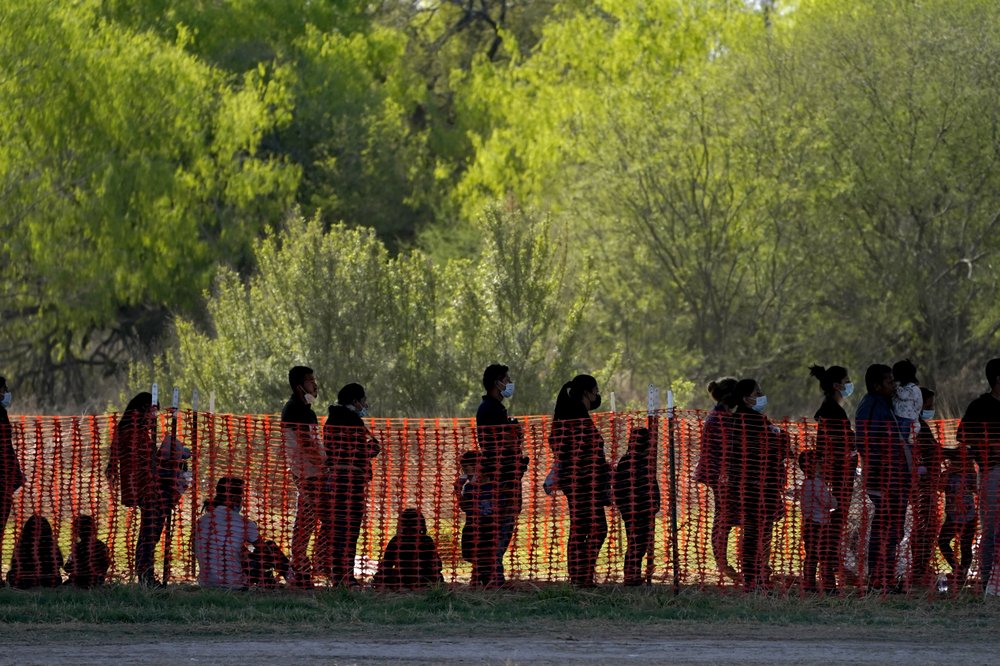
José Paulino Pascual-Reyes allegedly kidnapped a 12-year-old girl in Tallapoosa County, tied her to a bedpost, forced her to consume alcohol, and repeatedly assaulted her. According to police, he committed this abomination in his mobile home, with the decomposing, dismembered bodies of his girlfriend and her son stashed nearby. Now, at least two people are dead allegedly at the hands of this monster, and a pre-teen girl has experienced the type of horrific trauma usually only seen in Hollywood films like “The Silence of the Lambs.” This is a shocking and gruesome tale. However, what is most shocking about Pascual-Reyes’ story is that if our political leaders prioritized immigration enforcement, this whole catastrophe could have been prevented. Pascual-Reyes is an illegal alien – one who was already deported from the U.S. at least once in 2014. Therefore, he could have been in the custody of U.S. Immigration and Customs Enforcement (ICE), awaiting expedited removal from the United States. It is easy to cut the Department of Homeland Security (DHS) a break and argue that thousands of “gotaways” make it over the border every day without being detected. Therefore, it simply isn’t reasonable to expect ICE or Customs and Border Protection (CBP) to know about every criminal deviant like Pascual-Reyes. But that argument lets immigration policymakers avoid responsibility way too easily. Pascual-Reyes appears to have been involved with Sandra Vazquez Ceja, another alien who had been paroled into the United States to pursue an asylum claim. Had agents from DHS been permitted to verify that Ceja was complying with the terms of her parole, they would likely have encountered Pascual-Reyes, detained him, and sought reinstatement of the deportation order entered against him in 2014. Such actions would have removed him from the community, ensured that he remained in ICE custody, and prohibited him from committing crimes. But that would have required the type of pro-active approach to immigration enforcement, which has been sorely lacking under both Republican and Democrat administrations over the last four decades – the notable exception being the four years of the Donald Trump presidency. The reality is, despite the fact that our asylum/refugee system is rife with fraud and has repeatedly been exploited by terrorists, criminals, and human rights abusers, DHS actually engages in minimal investigation, supervision, and oversight of asylum claimants. Where there is blatant evidence of a fraudulent asylum claim, an applicant might be subject to a site visit and interview by USCIS’ Fraud Detection and National Security Directorate (FDNS). But this occurs only in a very small number of cases. Rarer still is an investigation of asylum fraud by ICE. Almost non-existent are site visits by ICE to check up on people who have been paroled into the U.S. to await the adjudication of asylum and other immigration benefits applications. This type of laissez-faire approach to immigration enforcement is entirely untenable and inevitably leads to the macabre scene encountered in Alabama or equally disturbing (and preventable) tragedies like the murder of Kate Steinle and the kidnap, murder, and rape of Mollie Tibbets. Moreover, Pascual-Reyes, if convicted, is only the latest in a long line of illegal alien mass murderers that includes Rafael Resendiz-Ramirez, known as “The Railroad Killer,” Billy Chemirmir, and Ernesto Martinez-Guzman, among others. The only way to prevent cases like these is for DHS to go into migrant communities and seek out opportunities to encounter and apprehend illegal aliens. One of the best ways to do this is to monitor aliens with pending asylum applications, who often have illegal alien relatives and spouses for whom they later plan to seek immigration benefits. The fact is, 99 percent of the asylum claims filed by citizens of Mexico and the countries that make up Central and South America are utterly baseless. The Immigration and Nationality Act provides ample authority for the prompt removal of border jumpers and other alien lawbreakers, if only the government would use it. And most regular Americans understand that we cannot pretend that everyone filing a bogus asylum application in order to access the United States is well-intentioned and means us no harm. If our elected leaders would get out of the way and let them perform their sworn duties, our immigration enforcement officers would be much more likely to find and detain deviant predators like Pascual-Reyes and Resendiz-Ramirez before they prey on innocent people. Instead, our representatives have saddled us with contradictory immigration policies that attract criminals and permit them to remain here with impunity – at the expense of both law-abiding Americans and legal immigrants. Matt O’Brien is director of investigations at the Immigration Reform Law Institute and a former immigration judge. Prior to becoming an immigration judge, he served as a division head in U.S. Citizenship and Immigration Service’s Fraud Detection and National Security Directorate. Before working at USCIS, he served as assistant chief counsel with U.S. Immigration and Customs Enforcement.
Federal judge blocks Biden administration from ending Title 42 immigration enforcement

A federal judge in Louisiana on Monday blocked the Biden administration from ending the enforcement of a COVID-era policy that allowed U.S. Customs and Border Protection agents to quickly deport illegal immigrants over health concerns during the pandemic. The U.S. Centers for Disease Control and Prevention announced on April 1 that it was ending Title 42 enforcement on May 23, raising significant concerns among both Republicans and a growing number of Democrats that already inflated numbers of illegal border crossings under the Biden administration would spike even further. Shortly after the CDC announcement, Arizona Attorney General Mark Brnovich, Louisiana Attorney General Jeff Landry, and Missouri Attorney General Eric Schmitt sued. The attorneys general from 18 other states have since joined the lawsuit. A hearing was held Monday in the U.S. District Court for the Western District of Louisiana, and Judge Robert Summerhays said he was issuing a temporary restraining order against the administration. “For the reasons stated on the record, the Court announced its intent to grant the motion,” the judge said. “The parties will confer regarding the specific terms to be contained in the Temporary Restraining Order and attempt to reach agreement.” After the ruling, Louisiana AG Landry called ending Title 42 enforcement an “enormous threat.” “Joe Biden’s reckless decision to rescind Title 42 would have flooded our already stressed southern border with illegal immigrants,” Landry said in a statement. “Fortunately, today a judge has granted our request to halt this enormous threat to our national security. We will continue to ensure that citizenship means something and that those in this country illegally are not conferred greater rights than our citizens.” Before Monday’s ruling, the Department of Homeland Security said it was putting in place measures to prepare for up to 18,000 people a day to illegally cross Mexico’s border with the U.S. once Title 42 was lifted. This estimate is in addition to the roughly 2 million people who were apprehended or encountered by Border Patrol agents in Biden’s first year in office while Title 42 was in place. All encounter numbers exclude “gotaways,” those who evade capture and don’t surrender at ports of entry. Schmitt also hailed the decision. “This is a huge victory for border security, but the fight continues on,” he tweeted. Republished with the permission of The Center Square.
Many migrants staying in U.S. even as expulsion flights rise

Three hours after being freed from a giant migrant camp under an international bridge, Mackenson Veillard stood outside a gas station and took stock of his sudden good fortune as he and his pregnant wife waited for a Greyhound bus to take them to a cousin in San Antonio. The couple camped with thousands for a week under the bridge in Del Rio, Texas, sleeping on concrete and getting by on bread and bottled water. “I felt so stressed,” Veillard, 25, said this week. “But now, I feel better. It’s like I’m starting a new life.” Many Haitian migrants in Del Rio are being released in the United States, according to two U.S. officials, undercutting the Biden administration’s public statements that the thousands in the camp faced immediate expulsion to Haiti. Haitians have been freed on a “very, very large scale” in recent days, one official said Tuesday. The official, who was not authorized to discuss the matter and thus spoke on condition of anonymity, put the figure in the thousands. Many have been released with notices to appear at an immigration office within 60 days, an outcome that requires less processing time from Border Patrol agents than ordering an appearance in immigration court and points to the speed at which authorities are moving. The releases come despite a massive effort to expel Haitians on flights under pandemic-related authority that denies migrants a chance to seek asylum. A third U.S. official not authorized to discuss operations said there were seven daily flights to Haiti planned starting Wednesday. Ten flights arrived in Haiti from Sunday to Tuesday in planes designed for 135 passengers, according to Haitian officials, who didn’t provide a complete count but said six of those flights carried 713 migrants combined. The camp held more than 14,000 people over the weekend, according to some estimates. Texas Gov. Greg Abbott, during a visit Tuesday to Del Rio, said the county’s top official told him the most recent tally was about 8,600 migrants. U.S. authorities have declined to say how many have been released in the U.S. in recent days. The Homeland Security Department has been busing Haitians from Del Rio, a town of 35,000 people, to El Paso, Laredo, and the Rio Grande Valley along the Texas border, and this week added flights to Tucson, Arizona, the official said. They are processed by the Border Patrol at those locations. Criteria for deciding who is flown to Haiti and who is released in the U.S. are a mystery, but two officials said single adults were a priority. If previous handling of asylum-seekers is any guide, the administration is more likely to release those deemed vulnerable, including pregnant women, families with young children, and those with medical issues. The Biden administration exempts unaccompanied children from expulsion flights on humanitarian grounds. Wilgens Jean and his wife, Junia Michel, waited in Del Rio this week for relatives to send the $439 in bus fare to get to Springfield, Ohio, where Jean’s brother lives. Michel, who is pregnant, huddled under the little shade the parking lot had to offer from the brutal heat. Her only request was for sunscreen that she softly rubbed on her pregnant belly. On the concrete in front of them lay two backpacks and a black garbage bag which held everything the couple owns. The pair left in Haiti in April and were in the Del Rio camp for five days. Jean said because his wife is expecting, they were released from the camp on Monday. “I entered by crossing the river,” Jean said. “Immigration gave me a ticket.” The system is a “black box,” said Wade McMullen, an attorney with the Robert F. Kennedy Center for Justice and Human Rights, who was in Del Rio. “Right now, we have no official access to understand what processes are underway, what protections are being provided for the migrants.” Accounts of wide-scale releases — some observed at the Del Rio bus station by Associated Press journalists — are at odds with statements Monday by Homeland Security Secretary Alejandro Mayorkas, who traveled to Del Rio to promise swift action. “If you come to the United States illegally, you will be returned, your journey will not succeed, and you will be endangering your life and your family’s life,” he said at a news conference. Homeland Security asked to comment on releases in the United States, said Wednesday that migrants who are not immediately expelled to Haiti may be detained or released with a notice to appear in immigration court or report to an immigration office, depending on available custody space. “The Biden Administration has reiterated that our borders are not open, and people should not make the dangerous journey,” the department said in a statement. “Individuals and families are subject to border restrictions, including expulsion.” Meanwhile, Mexico has begun busing and flying Haitian migrants away from the U.S. border, signaling a new level of support for the United States as the camp presented President Joe Biden with a humanitarian and increasingly political challenge. The White House is facing sharp bipartisan condemnation. Republicans say Biden administration policies led Haitians to believe they would get asylum. Democrats are expressing outrage after images went viral this week of Border Patrol agents on horseback using aggressive tactics against the migrants. Immigrants have described a screening process at the camp where individuals are given colored tickets for four categories: single men, single women, pregnant women, and families with young children, McMullen said. The vast majority of immigrants he and other advocates have interviewed and who have been released into the U.S. have been families with young children and pregnant women. About 200 migrants were released on Monday in Del Rio. About 50 of them, mostly Haitian and many pregnant or with small children, boarded a bus to Houston, from where they would fly to destinations across the country. The Val Verde Border Humanitarian Coalition advocacy group arranged the charter bus and supplied sack lunches of a sandwich and cookies. After an initial stay with family
City of Dadeville awarded $322,857 grant for new firefighting vehicle

Congressman Mike Rogers issued a press release congratulating the City of Dadeville for receiving a $322,857.14 grant from the U.S. Department of Homeland Security. The funding will help the city purchase a new firefighting vehicle. Rogers stated, “Tallapoosa County’s first responders are our first line of defense. I congratulate the men and women of the City of Dadeville for receiving this grant and hope it will ultimately help increase the safety for all local citizens. I am pleased to see the federal government is continuing to make these types of investments in the Third District.” Rogers, who serves as the lead Republican on the House Armed Services Committee said the grant should be awarded under the 2020 Assistance to Firefighters Grant Program, an essential federal program that supports first responders. According to the Homeland Security Department, which administers the grant, the purpose of the program is to award funding directly to fire departments, nonaffiliated EMS organizations, and state fire training academies. These awards aim to enhance first responders’ ability to protect the health and safety of the public, as well as that of first-responder personnel, with respect to fire-related hazards.
Supreme Court orders ‘Remain in Mexico’ policy reinstated
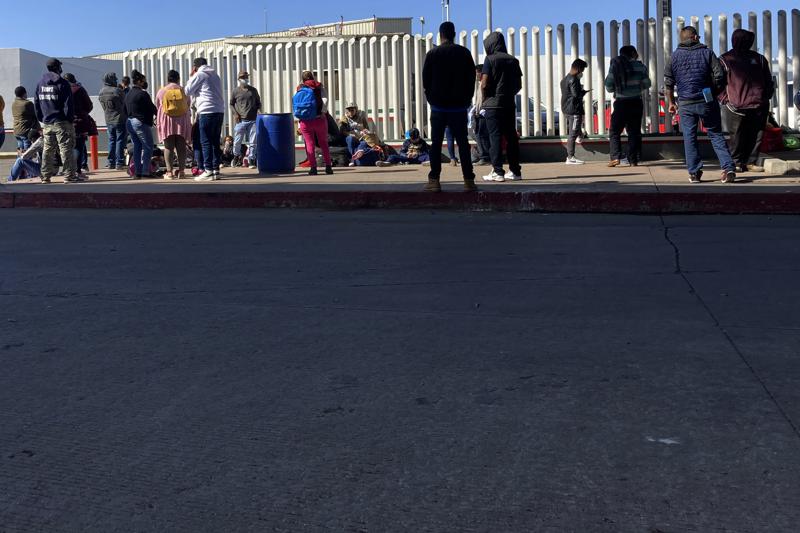
The Supreme Court on Tuesday said the Biden administration likely violated federal law in trying to end a Trump-era program that forces people to wait in Mexico while seeking asylum in the U.S. With three liberal justices in dissent, the high court refused to block a lower court ruling ordering the administration to reinstate the program informally known as Remain in Mexico. It’s not clear how many people will be affected and how quickly. Under the lower court ruling, the administration must make a “good faith effort” to restart the program. There also is nothing preventing the administration from trying again to end the program, formally called Migrant Protection Protocols. A federal judge in Texas had previously ordered that the program be reinstated last week. Both he and the 5th U.S. Circuit Court of Appeals refused the administration’s request to put the ruling on hold. Justice Samuel Alito ordered a brief delay to allow the full court time to consider the administration’s appeal to keep the ruling on hold while the case continues to make its way through the courts. The 5th Circuit ordered expedited consideration of the administration’s appeal. The court offered little explanation for its action, although it cited its opinion from last year rejecting the Trump administration’s effort to end another immigration program, Deferred Action for Childhood Arrivals. In that case, the court held that the decision to end DACA was “arbitrary and capricious,” in violation of federal law. The administration has “failed to show a likelihood of success on the claim that the memorandum rescinding the Migrant Protection Protocols was not arbitrary and capricious,” the court wrote Tuesday in an unsigned order. The three dissenting justices, Stephen Breyer, Elena Kagan, and Sonia Sotomayor, did not write an opinion expressing their views of the case. In a statement, the Department of Homeland Security said it regrets that the high court declined to issue a stay. The department said it would continue to challenge the district court’s order. The American Civil Liberties Union called on the administration to present a fuller rationale for ending Remain in Mexico that could withstand court scrutiny. “The government must take all steps available to fully end this illegal program, including by re-terminating it with a fuller explanation. What it must not do is use this decision as cover for abandoning its commitment to restore a fair asylum system,” said Omar Jadwat, director of the ACLU’s immigrant rights project. During Donald Trump’s presidency, the policy required tens of thousands of migrants seeking asylum in the U.S. to turn back to Mexico. It was meant to discourage asylum seekers, but critics said it denied people the legal right to seek protection in the U.S. and forced them to wait in dangerous Mexican border cities. The judge, U.S. District Judge Matthew J. Kacsmaryk in Amarillo, Texas, ordered that the program be reinstated in response to a lawsuit filed by the states of Texas and Missouri, whose governors have been seeking to reinstate some of the hard-line anti-immigration policies of the Trump administration. The Biden administration argued in briefs that the president has “clear authority to determine immigration policy” and that Homeland Security Secretary Alejandro Mayorkas had discretion in deciding whether to return asylum seekers to Mexico. The policy has been dormant for more than a year, and the administration argued that abruptly reinstating it “would prejudice the United States’ relations with vital regional partners, severely disrupt its operations at the southern border, and threaten to create a diplomatic and humanitarian crisis.” The Trump administration largely stopped using the “Remain in Mexico” policy at the start of the pandemic, at which point it began turning back virtually everyone crossing the Southwest border under a different protocol — a public health order that remains in effect. President Joe Biden suspended the program on his first day of office, and the Homeland Security Department ended it in June. Kacsmaryk was nominated to the federal bench by Trump. The 5th Circuit panel that ruled Thursday night included two Trump appointees, Andrew Oldham and Cory Wilson, along with Jennifer Walker Elrod, nominated to the appeals court by President George W. Bush. At the high court, at least five of the six conservative justices, including three Trump appointees, voted for the restart of the program. Under the court’s opaque treatment of emergency appeals, the justices don’t always say publicly how they voted. Republished with the permission of the Associated Press.
Public, election offices may be kept in the dark on hacks

If the FBI discovers that foreign hackers have infiltrated the networks of your county election office, you may not find out about it until after voting is over. And your governor and other state officials may be kept in the dark, too. There’s no federal law compelling state and local governments to share information when an electoral system is hacked. And a federal policy keeps details secret by shielding the identity of all cyber victims regardless of whether election systems are involved. Election officials are in a difficult spot: If someone else’s voting system is targeted, they want to know exactly what happened so they can protect their own system. Yet when their own systems are targeted, they may be cautious about disclosing details. They must balance the need for openness with worries over undermining any criminal investigation. And they want to avoid chaos or confusion, the kind of disruption that hackers want.The secrecy surrounding foreign hacks is not a hypothetical issue. The public still doesn’t know which Florida counties were breached by Russian agents in the 2016 election. Rick Scott, Florida’s governor in 2016 and now a U.S. senator, was not told at the time and didn’t learn most of the details until this year. And the threat to electoral systems is real. Federal officials believe Russian agents in 2016 searched for vulnerabilities within election systems in all 50 states. And the nation’s intelligence chiefs warn that Russia and other nations remain interested in interfering in U.S. elections. Meanwhile, experts worry the White House hasn’t highlighted the threat as President Donald Trump argues it’s OK for foreign countries to provide damaging information on his political rivals, a matter now the subject of an impeachment inquiry led by House Democrats. In general, it’s up to electoral agencies to disclose when they’ve been hacked. That, plus the federal policy protecting the identity of cyber victims, could mean that state election officials might not be told immediately if one of their local election offices experiences a breach. In addition, the whole situation could be considered classified as part of a federal investigation. At least two states — Colorado and Iowa — have implemented policies to compel local officials to notify the state about suspected breaches involving election systems. “Every American in this nation deserves to have a democracy they can believe in, and when there is not good communication on cyber incidents … it does create a lack of confidence in the system,” said Colorado Secretary of State Jena Griswold. “Luckily we have been able to work around the void of federal policy that has been leaving our nation in a precarious spot.” But Department of Homeland Security officials say privacy is needed to ensure that officials come forward and share valuable threat information, such as suspect IP addresses. Some election officials could be hesitant about public disclosures, concerned their agencies would be portrayed in a negative light. They could opt to handle any breach alone. That could create dangerous delays in sharing information, said Jeanette Manfra, assistant director for cybersecurity at Homeland Security’s new cyber agency. Homeland Security acts as the middleman between the intelligence community and the states. In general, communication and coordination on election security have improved in the last two years. “We’ve worked over the years to be able to declassify even more and to do it faster,” Manfra said. “It’s still not a perfect process.” Due to the criminal nature of cyber breaches, law enforcement officials may seek to withhold releasing certain information long after the incident. When Florida’s current governor, Ron DeSantis, was briefed this year on the 2016 cyber breaches, he said he signed an agreement preventing him from identifying the affected counties. The secrecy surrounding Florida helped spur bipartisan legislation that would compel reporting among federal, state and local officials and to voters potentially affected by a breach. Rep. Stephanie Murphy, a Florida Democrat, co-sponsor of the bill, said she believes voters are the victims, not the election office, and that not disclosing information about election-related breaches could undermine public confidence. In June, a majority of Americans expressed at least some concern that voting systems are vulnerable to hackers, according to a poll from The Associated Press-NORC Center for Public Affairs Research. “It’s hard for me to assess if what people are doing in response is sufficient when I don’t know the full scope of the problem,” Murphy said. “And I think that’s the same issue with voters: How can they feel comfortable or confident that this next election will be free and fair?” Yet election officials want to ensure they have a good understanding of what happened before going public so they don’t contribute to the confusion that the hackers may be trying to achieve. Cyber intrusions are inherently complicated, taking time to understand and contain. There is also a concern of inadvertently releasing information that could invite further compromises or undermine an investigation. “It is important to be as transparent as possible, but as with any crime, the full details of an investigation are not discussed,” said Paul Pate, Iowa’s Republican secretary of state. “It’s a balancing act that needs to be measured on a case-by-case basis.” In 2017, California election officials quickly disclosed the state had been notified by federal officials that its election systems were among those scanned by Russians the year before. Five days later, they had to correct the announcement after discovering the scans involved a non-election system. Secretary of State Alex Padilla, a Democrat, said it was an important lesson in making sure all the facts were there, especially considering the public is not familiar with cybersecurity terminology. In the summer of 2016, hackers accessed Illinois’ voter registration database, and officials moved fast to shut down the system and isolate the threat. State officials knew the move wouldn’t go unnoticed and felt it was important to notify the public. It became clear only later that Russian agents were involved, and the breach was part of an
Cybersecurity officials start focusing on the 2020 elections

Federal cybersecurity officials aren’t aware of any voting system compromises by Russia or other foreign agents during the midterm elections. But it’s not entirely clear why — or whether hackers are saving their gun powder for the 2020 presidential showdown. Nevertheless, election security officials are already working to prepare for the next big race. During Tuesday’s midterm voting, 45 states came together to report on potential cyber threats along with federal experts who were weighed in on real time. The head of cybersecurity at the Department of Homeland Security, Chris Krebs, says there was an increase this year in reporting of potential cyber incidents. He attributes that to better communication, not an increase in overall threats. In 2016, federal officials were accused of being too tight-lipped.
Bradley Byrne confirms illegal immigrants will not be housed in Baldwin County
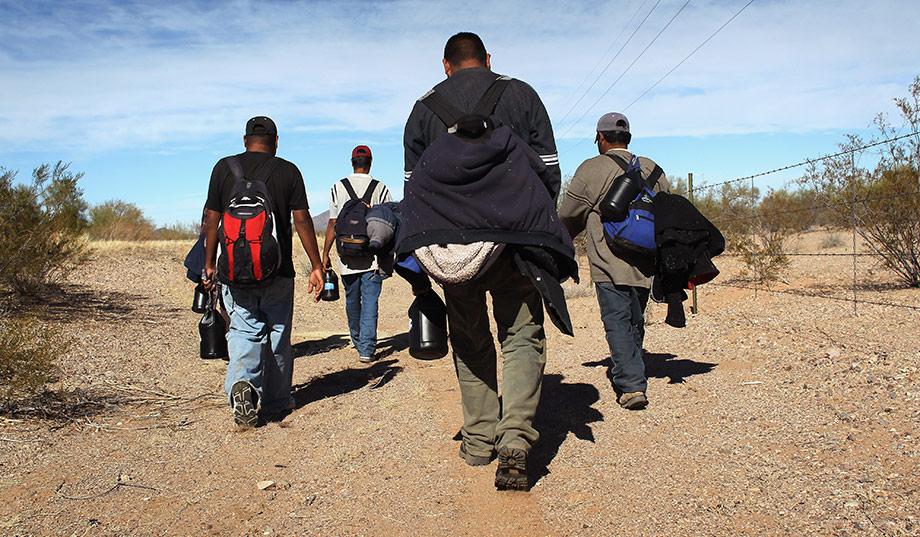
Alabama 1st District U.S. Rep. Bradley Byrne on Tuesday tweeted there are no plans to house immigrants at the Navy airfields in south Baldwin County. “BREAKING: My office has learned that there are no plans to house illegal immigrants at Navy airfields in south Baldwin County! This was a bad idea from the start, and I am pleased it will not come to fruition,” Byrne tweeted upon receiving confirmation from the Department of Homeland Security (DHS) and Immigration and Customs Enforcement (ICE). BREAKING: My office has learned that there are no plans to house illegal immigrants at Navy airfields in south Baldwin County! This was a bad idea from the start, and I am pleased it will not come to fruition. — Rep. Bradley Byrne (@RepByrne) August 14, 2018 “Housing illegal immigrants at ill-equipped airfields along the Gulf Coast was always a terrible idea, so I appreciate the confirmation that this plan is no longer being considered,” Byrne said in a statement following his tweet. “We had a team effort to push back this flawed idea, and I especially want to thank Baldwin County Commissioners Chris Elliott and Tucker Dorsey and Baldwin County Sheriff Hoss Mack for their advocacy on this issue.” Byne continued, While I am glad this issue is resolved, we must continue working to secure the border and eliminate the need for additional housing for illegal immigrants altogether. I remain 100% committed to working with President Trump to build a border wall, hire additional border patrol officers, and ensure our border security is as strong as possible.” Byrne led an effort in Washington in June to express opposition to housing up to 10,000 illegal immigrants at Naval Outlying Field Silverhill and Naval Outlying Field Wolf in south Baldwin County. He joined other members of the Alabama and Florida Congressional delegations in sending a letter to Secretary of Defense James Mattis and Secretary of Homeland Security Kirstjen Nielson outlining concerns with the proposal. Byrne also hosted Baldwin County officials in Washington for a series of meetings to convene local concerns with the proposal. Read the letter from ICE Deputy Director Ronald Vitiello below:
Bradley Byrne leads colleagues in opposition to Baldwin County immigration site
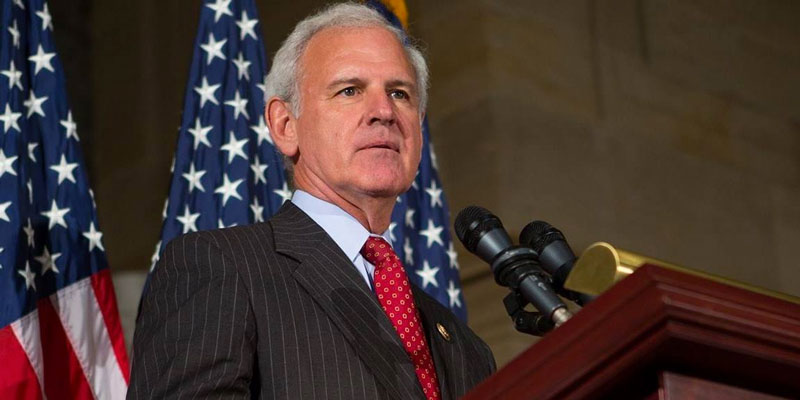
Alabama 1st District U.S. Rep. Bradley Byrne on Tuesday lead a group of colleagues from Alabama and Florida in sending a letter to urge the Department of Homeland Security (DHS) and the Department of Defense (DOD) to halt efforts to house illegal immigrants at two Navy outlying airfields in south Baldwin County, Alabama. In a letter to Secretary of Defense James Mattis and Secretary of Homeland Security Kirstjen Nielsen, the Members of Congress outlined why the lack of infrastructure at the airfields and the unique coastal environment make the sites completely unacceptable for housing. “I appreciate my Alabama and Florida colleagues joining me to express our serious concerns about any proposal to house illegal immigrants in Baldwin County,” Byrne said of the letter. “I am hopeful our concerns will be taken seriously and this flawed idea will be taken off the table, just like it was back in 2016.” Within the Alabama delegation, the letter was signed by all the Republican House Members: 4th District U.S. Rep. Robert Aderholt, 5th District U.S. Rep. Mo Brooks, 6th District U.S. Rep. Gary Palmer, 2nd District U.S. Rep. Martha Roby, and 3rd District U.S. Rep. Mike Rogers. The full text of the letter can also be found below. Dear Secretary Mattis and Secretary Nielson: We write to express strong opposition to the consideration of Naval Air Station Whiting Field’s Naval Outlying Field (NOLF) Silverhill in Silverhill, Alabama and NOLF Wolf in Orange Beach, Alabama as detention facilities for illegal immigrants detained from the U.S. southern border as these locations cannot adequately meet the needs of housing and sustaining migrants. While the Department of Homeland Security (DHS) has not formally asked the Department of Defense (DOD) for assistance to house migrants, it has come to our attention that DHS is working with DOD to develop a plan to house immigrants in temporary tent structures, including the possibility of using the above-mentioned sites. These locations are undeveloped military airfields. They lack even basic infrastructure, such as running water, housing, or restroom facilities, to provide even rudimentary needs for detained immigrants. Given this lack of infrastructure, individuals would be housed in tents and potentially exposed to disease carrying insects that are prevalent in the coastal environment. There are also serious natural hazards that should be taken into consideration at these sites. The Gulf Coast region is prone to severe weather including hurricanes, tornadoes, flash floods, thunder storms, severe heat waves, and high humidity. These natural hazards could present serious risks to those housed at these facilities, particularly to those housed in tent structures, as well as the personnel responsible for overseeing the facilities. Additionally, having to evacuate an additional 25,000 individuals from the airfields would place a further strain on what is already a complex hurricane evacuation system. This is not the first time a proposal has been made to use these airfields to house illegal immigrants. In 2016, the Obama Administration ultimately abandoned a similar effort to use these sites after intense pushback from Congress and local officials. During that discussion, based upon similar arguments, the House of Representatives passed an amendment to the annual Military Construction and Veterans Affairs Appropriations bill (H.R. 4974), which barred funds in the bill from being used to modify a military installation in the United States to provide temporary housing for unaccompanied alien children. H.R. 4974, with the amendment included, passed the House on May 19, 2016, by a bipartisan vote of 295 to 129. It is our sincere hope that the Trump Administration will come to the same conclusion that these airfields are not a legitimate option to house illegal immigrants. To be clear, we look forward to working with the Trump Administration to ensure that our nation’s immigration laws are fully enforced and to stem the flow of illegal immigrants at our nation’s southern border. As we work together, we hope you can assure us that the naval airfields in Baldwin County will not be used to house illegal immigrants.
Jim Zeigler asks DHS to cancel plan to house illegal detainees in Baldwin County
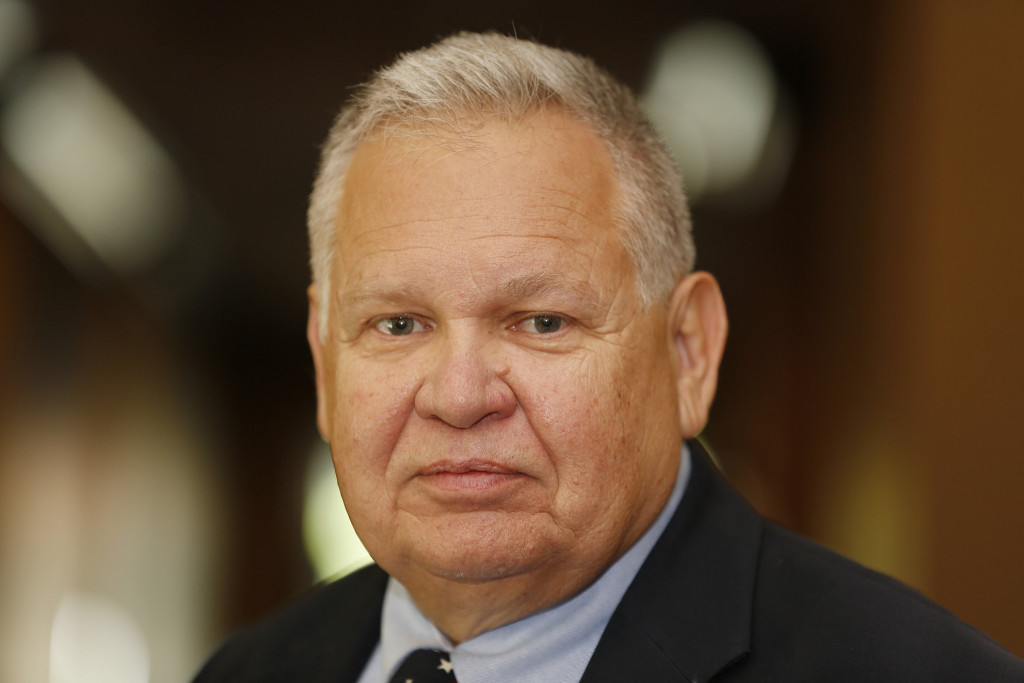
Time reported on Friday it had obtained an internal document that details the U.S. Navy’s plans to construct “temporary and austere” tent cities to house 25,000 illegal immigrants in the Yellowhammer State at two abandoned airfields — Navy Outlying Field Wolf in Orange Beach and Navy Outlying Field Silverhill — and Alabama State Auditor Jim Zeigler is trying to stop them. Zeigler, a resident of nearby Mobile County, sent a formal request to the U.S. Department of Homeland Security (DHS)Secretary Kirstjen Nielsen asking her to cancel the plans to construct two tent cities in Baldwin County. Zeigler says the plan is “terribly flawed.” He cited four problems with the plan: The area is a hurricane zone. “This area is a hurricane zone,” said Zeigler. “A tent city in a hurricane zone is dangerous for the detainees and the staff. It would be difficult and costly to quickly evacuate the detainees when a hurricane heads our way, which happens frequently. This site is totally inappropriate for the intended purpose.” High temps and humidity. Zeigler continued, “The area has high temperatures and humidity. There will be no air conditioning in a tent city. Other geographical areas are available without the heat and humidity. The site selection authority needs to be fired.” It’s near the state’s booming tourist industry. “The area is in or near Alabama’s booming tourist industry and highest revenue-generating area,” Zeigler explained. “Tourism and revenues would be adversely affected by these sites. Optional areas are available that are isolated and are not vital to tourism and revenue generation.” Security. “Security is a continuous problem with a sprawling tent city in a residential area,” Zeigler added. “Escapees can commit crimes in the nearby neighborhoods. Isolated areas are available that would not have this problem.”
Lawmakers seek Puerto Rico exemption to law that slowed aid
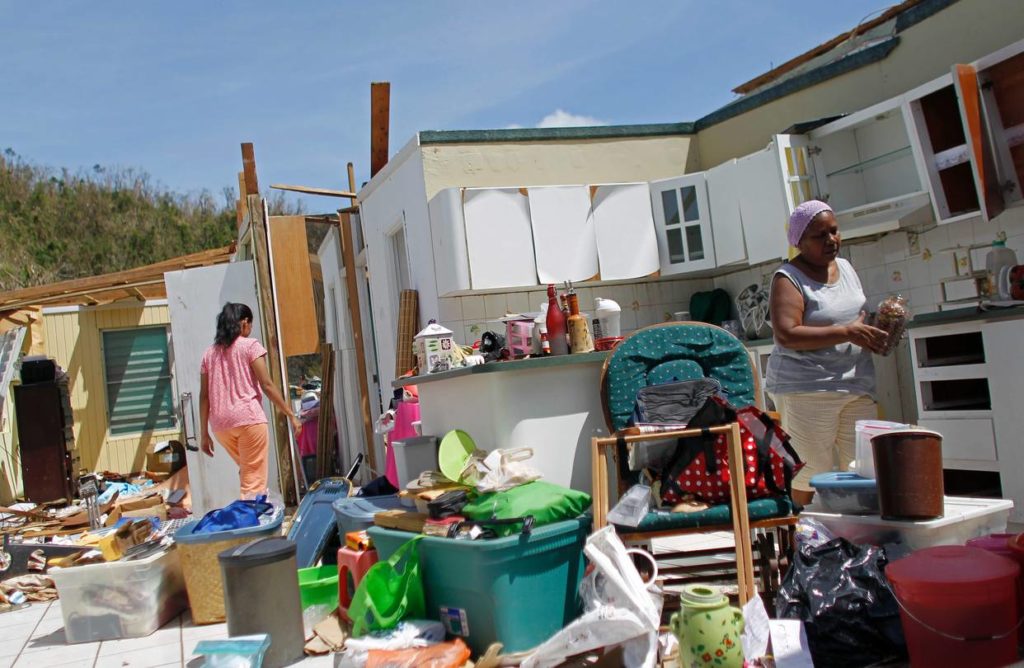
Republicans and Democrats in Congress are pushing to exempt Puerto Rico from a federal law that prohibits foreign-flagged ships from shuttling goods between U.S. ports. President Donald Trump temporarily waived the Jones Act last month amid criticism that the once-obscure law hindered relief efforts to in Puerto Rico following Hurricane Maria. The 10-day waiver expired on Sunday night and was not renewed. A spokesman for the Department of Homeland Security said an extension was not needed to support relief efforts on the island, adding that there’s “an ample supply” of U.S.-flagged vessels to ensure cargo reaches Puerto Rico. Sen. John McCain, R-Ariz., said Monday that the expiration of the Jones Act waiver added renewed urgency to his push to permanently exempt Puerto Rico from what he called an “archaic and burdensome law.” “Until we provide Puerto Rico with long-term relief, the Jones Act will continue to hinder much-needed efforts to help the people of Puerto Rico recover and rebuild from Hurricane Maria,” he said. Rep. Nydia Velázquez, D-N.Y., said the temporary waiver should be extended for at least a year while Congress debates a permanent exemption for Puerto Rico. “Significant numbers of Puerto Ricans remain displaced and still lack food, drinking water and electricity,” she wrote in a letter to Trump. “If the Jones Act is reinstated, building supplies will cost significantly more in Puerto Rico, compared to costs on the mainland. This will serve only to slow Puerto Rico’s long-term recovery.” The Trump administration initially said a waiver was not needed because there were enough U.S.-flagged ships available to ferry goods to Puerto Rico. Delays in getting relief supplies to Puerto Rico occurred because of bottlenecks that resulted from the island’s damaged ports and blocked roads, not a lack of ships, officials said. Even so, Trump waived Jones Act restrictions on Sept. 28, just as he had done to help ease fuel shortages in the Southeast following hurricanes Harvey and Irma. Rep. Pramila Jayapal, D-Wash., called the Jones Act “incredibly important to our country’s economy and to the maritime industry,” which she said supports nearly 500,000 jobs and is responsible for more than $92 billion in annual gross economic output. In Washington state, the Jones Act supports more than 16,000, mostly unionized jobs, Jayapal said. “Without these jobs, our economy would suffer tremendously,” she said. “To be clear, everywhere in the country where we have Jones Act jobs, they are better jobs, better wages and a better future for our Americans across the country,” Jayapal said last week in a speech on the House floor. Republished with permission from the Associated Press.


